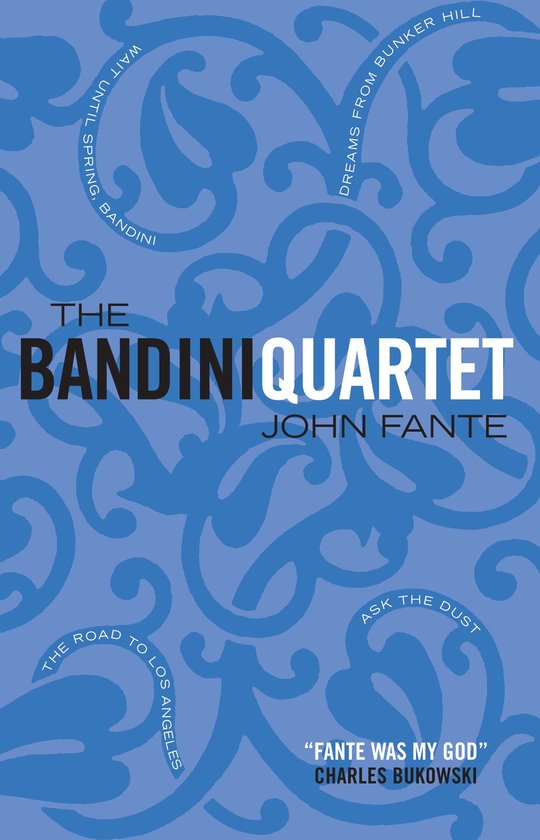Bandini quartet

Uiterlijk 29 november in huis
Possessing a style of deceptive simplicity, emotional immediacy and tremendous psychological point, among the novels, short stories and screenplays that complete his career, the author's crowning accomplishment is the Arturo Bandini tetralogy.
"Bandini is a magnificent creation, and his rediscovery is not before time." Times Literary Supplement
With introductions by Charles Bukowski and John Fante
One of the great outsider figures of twentieth-century literature, John Fante possessed a style of deceptive simplicity, full of emotional immediacy and tremendous psychological point. Among the novels, short stories and screenplays that comprised his career, Fante's crowning accomplishments were, for many, his four stories about a
certain uncomplicated character from the hills of Abruzzi. Collected together in one volume for the first time, The Bandini Quartet tells of Arturo Bandini, Fante's fictional alter ego, an impoverished young Italian-American who, armed with only a Jesuit high school education and the insane desire to write novels, escapes his suffocating home in Colorado to seek glory in a Depression-era Los Angeles. This edition also includes the first-ever UK publication of Dreams From Bunker Hill, the brilliant and final novel which a blind and wheelchair- bound Fante, nearing his death bed, dictated to his wife Joyce.
"A tough and beautifully realised tale . . . affecting, powerful and poignant stuff." Time Out
"John Fante knew how to make words sing. When he was on form, he could write sentences that stopped time." Uncut
"John Fante takes some beating . . . mean, moody, disturbing and intensely atmospheric." The Times
Design by James Hutcheson
Possessing a style of deceptive simplicity, emotional immediacy and tremendous psychological point, among the novels, short stories and screenplays that complete his career, Fante's crowning accomplishment is the Arturo Bandini tetralogy.
This quartet of novels tell of Fante's fictional alter-ego Bandini, an impoverished young Italian-American escaping his suffocating home in Colorado for Depression-era Los Angeles. In the beginning, it is the triple weights of poverty, father and Church that Bandini struggles under but though the physical escape is complete, the psychological imprint continues as he comes to terms with love, desire and the knowledge his talent may not be recognised.
- 1 Bekijk alle specificaties



Taal: en
Bindwijze: Paperback
Oorspronkelijke releasedatum: 21 juni 2004
Aantal pagina's: 768
Illustraties: Nee
Hoofdauteur: John Fante
Hoofdredacteur: Charles Bukowski
Tweede Redacteur: Dan Fante
Hoofduitgeverij: Canongate Books
Editie: Main
Product breedte: 129 mm
Product hoogte: 47 mm
Product lengte: 199 mm
Studieboek: Nee
Verpakking breedte: 130 mm
Verpakking hoogte: 52 mm
Verpakking lengte: 195 mm
Verpakkingsgewicht: 1097 g
EAN: 9781841954974